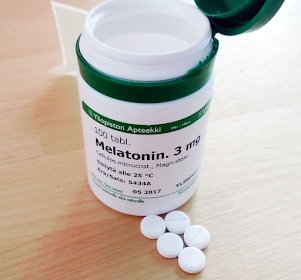Just a little sleepy...
Hello everyone! This is my second Cure AP of the term. Throughout this section of class, we’ve gone through the different types of medications that people may use to help themselves in certain situations. From antibiotics and antiseptics to expectorants and anesthetics, we’ve gone through examples of each. We also went over the difference between what a drug and a medicine is. For our Field Experience, we went to a medical lab that guides us through what a doctor might do to help their patients. This all related to our AP, which is to choose a symptom of some sort (like troubling sleeping, not eating enough, etc) and give a prescription treatment, an over-the-counter treatment, and a home remedy. This is my recommendations, so enjoy!
First solution we have here is Sonata, which has the sedative Sonata. It’s a prescription medication that you have to get your doctor to prescribe to you. How it works is that it works on specific receptors in your brain. The neurotransmitter that is releases is a natural nerve calming agent that helps balances your brain’s activity, which to make you feel drowsy and sleepy. It usually takes around 20-30 for it to set in, so take it around the time you wish to sleep. The active ingredient in Sonata is zaleplon, which is what makes you fall asleep so fast. The inactive ingredients are things that helps pills not fuse, give them their color, makes it so that they can go down easier, and helps get the main chemical in the body. Some side effects may include things like dizziness, drowsiness (outside of intended effect), numbness and/or tingling, a hangover-like feeling, and in more severe cases things like depression or anxiety and skin rashes.
(Note that melatonin is technically a supplement, not an over the counter)
The next on our list is melatonin. Melatonin is naturally occurring within the body, meaning you make it yourself without any need of medication. It’s produced in your brain as a response to the darkness. It helps you rest, although things like light block out the production of melatonin. Melatonin supplements are pills you can take (usually being synthetic) that help in producing more melatonin or introduce more melatonin into the body. While most of the melatonin products you can get do not have any adverse effects, you should only take as many as you need.
Finally we have a more home-remedy solution. As many people may or may not know, autonomous sensory meridian response (or ASMR for short) is a feeling some may get when hearing sounds like people’s whispers or crunching leaves- anything that makes that tingle go down your spine when you hear it. Some people react to some of these sounds so well they are even able to fall asleep (which hopefully you can do as well). While it is fairly new in terms of remedies, it is shown to have a really good effect on people. There are those that do not get anything from ASMR, though this seems to be a small minority. ASMR works by using sounds that people would find calming and pleasing, releasing chemicals that induce happiness and sleepiness. No need to worry about things like dosages or side effects; as stated before ASMR is most usually auditory, so the only thing you may need to worry about is having volume up too high if you have headphones/earphones in while you sleep.
So, this AP was kind of fun to put together. I feel, for me, the hardest part was really getting everything on paper and finding medications that could work. Especially with the over-the-counter medications. After I got that down, I was able to work through it well. I hope you enjoyed reading through it!
Works Cited
Entringer, Sophia. “Sonata: Uses, Dosage, Side Effects, Warnings.” Drugs.com, 2022, www.drugs.com/sonata.html.
GoodRx. “Zaleplon (Sonata): Basics, Side Effects & Reviews.” GoodRx, 2021, www.goodrx.com/zaleplon/what-is. Accessed 13 May 2022.
Mayo Clinic Staff. “Melatonin.” Mayo Clinic, 2018, www.mayoclinic.org/drugs-supplements-melatonin/art-20363071.
MedlinePlus. “Zaleplon: MedlinePlus Drug Information.” Medlineplus.gov, 2019, medlineplus.gov/druginfo/meds/a601251.html.
National Center for Complementary and Integrative Health. “Melatonin: What You Need to Know.” NCCIH, Jan. 2021, www.nccih.nih.gov/health/melatonin-what-you-need-to-know.
Ryan, Tom. “Using ASMR to Sleep Better.” Sleep Foundation, 23 June 2021, www.sleepfoundation.org/noise-and-sleep/asmr.
Suni, Eric. “Melatonin and Sleep.” Sleep Foundation, 6 Aug. 2020, www.sleepfoundation.org/melatonin.
Whitte, Matthew. “ASMR: What Is It and Can It Help You Sleep?” Sleep.org, 2022, www.sleep.org/sleep-questions/what-is-asmr/.



Comments
Post a Comment